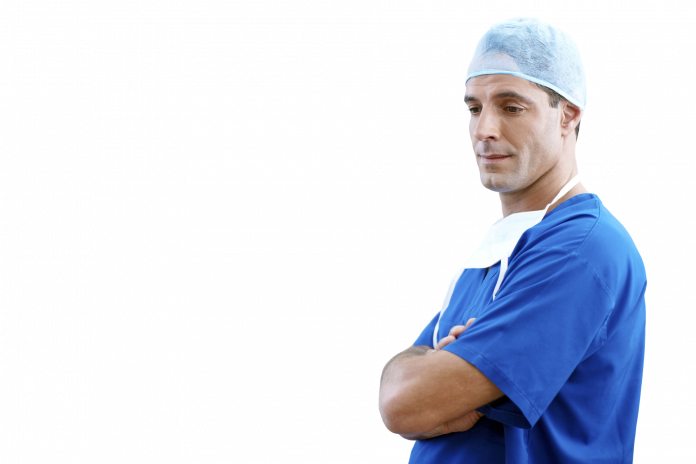This year, 9 September is R U OK? Day. This is an Australian initiative that was developed in 2009 by a man whose father was not OK and died by suicide. He was a passionate champion of the fact that a conversation can change a life. The day is a great opportunity to raise awareness of our individual and collective mental health and well-being, and our role in supporting each other to stay healthy and well in body, mind and Soul.
This year the message is: “Are they really OK? Ask them today.”
The first question that comes to my mind is:
Are any of us OK at this time?
And the second is:
Is one day enough? Or do we need to be looking out for each other and reaching out if we can sense that all is not well on each and every day of the year?
I know first-hand of the importance of supporting each other. I still remember while as a medical student and junior doctor, being riddled with anxiety and drinking heavily to try and cope, that not one of my colleagues ever asked if I was OK. The only person who even passed comment was a demented old lady I was looking after on the ward and when I bent over to examine her chest one morning she shrieked: “You stink of alcohol!” I was so self-conscious about this fact, both before and even more after this episode that I cleaned my teeth frequently and assiduously, lived on breath mints and hoped no one else would comment. Which they did not.
Later in my training, as my drinking was allowed to continue unchecked, it got worse, as problem drinking tends to do. No one at work asked me if I was OK. Not one person. My close friend and my boyfriend were all too aware that I had a problem and eventually staged an intervention, taking me to a rehab facility for help.
As I started to recover, and my innate sensitivity began to return, I began to realise how not OK I had been. When I was dulling and numbing my senses with sugar, heavy foods, cigarettes and alcohol, I did not realise I was not OK until I was REALLY not OK. When we normalise feeling tired, stressed, and overwhelmed, and use such behaviours to try and cope, we can tolerate and continue working under conditions that are not OK for us and that can take us to a point where we feel like we cannot go on.
When I came out of rehab two weeks later, shiny and sober, filled with enthusiasm for life and ready to work again, I told the truth about where I had been and THEN the powers that be decided I had a problem and tried to sack me. Fortunately for me, they were not successful and I have remained a sober and dedicated member of my profession ever since.
Why did no one in medicine ever ask me if I was OK?
What is it about the culture of medicine that has us willing to turn a blind eye to a struggling fellow human being?
We are very intelligent and aware beings. We are trained to observe other humans and to diagnose and treat their medical conditions. If I had had signs or symptoms of a physical illness or disease, no one would have hesitated to point them out, express their concern, and suggest I seek help or offer it themselves; but when it comes to the less tangible dis-eases, even though we are equally aware of them, we are much less willing to take action.
For many if not most, that reluctance may be because we don’t actually know what to do, our training in self-care, mental health, psychiatry and addiction medicine having usually been lacking to some degree. Things have improved somewhat since my training days, with greater awareness of and better training in mental health these days, but there is still much more focus placed on training us to deal with physical conditions, when our ill mental health often lies at the root of our physical problems.
We may not be sure what to do, but we have to start somewhere.
We don’t need to have all the answers
We don’t need to have all the answers to be able to help a fellow human being. The fact is that hardly any of us are OK at the moment. The world is not OK. It is unwell on so many levels and so are many of us. The only way we are going to flourish in this environment is to support each other, for we cannot do it alone.
I have the support of true and loving family and friends, for which I am forever grateful. We are not all so blessed. But even if we are on our own, we can find simple ways to support ourselves, and there are avenues available for us to reach out to others if we are struggling (see links below).
What I have come to learn is that I feel anxious if I am not fully present in my body. So if I become aware of anxious thoughts and feelings, I bring my awareness back to my body and focus on feeling myself in my whole body, from the top of my head to the tips of my fingers and toes and this helps me to settle again. And if I am still struggling, I change my posture if I am sitting. And if I still can’t shift my troublesome thoughts, I change my movements and get up and go for a walk.
These simple tools have made a huge difference in my own life and in the lives of those I have shared them with. They take practice to develop proficiency with, so be patient with yourself and just keep bringing your awareness back to your body, no matter how often your thoughts try to take you elsewhere. This can be done anywhere, at any time and you can do it on your own.
And if you are still struggling, please pick up the phone and talk to someone who can offer you true support. This may be a family member, friend, loved one, health professional, minister, or one of the services listed below … anyone who is willing to listen and care.
The ripple effects of caring for ourselves are ever-expanding, for the more deeply we care for ourselves, the more we will look out for and care for each other.
“R U OK?” is something we can ask ourselves and each other each and every day and if we care for ourselves and each other, there is nothing we cannot overcome, together.
Resources:
R U OK Day: https://www.ruok.org.au/join-r-u-ok-day
Lifeline: https://www.lifeline.org.au/ Call 13 11 14 for 24/7 Crisis Support
Doctors Health Advisory Service: http://dhas.org.au/ Phone: 02 9437 6552









